Macro-Finance Salon (No. 109): The 10th Anniversary of the Global Financial Crisis-What We Have Learned
2018-12-13 IMI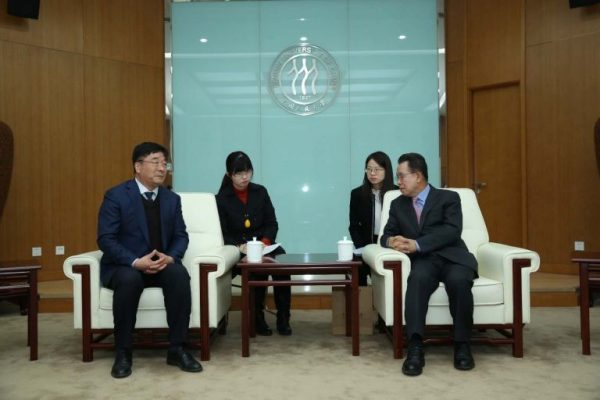
President Liu Wei exchanged views with Dr. Han Seung-soo
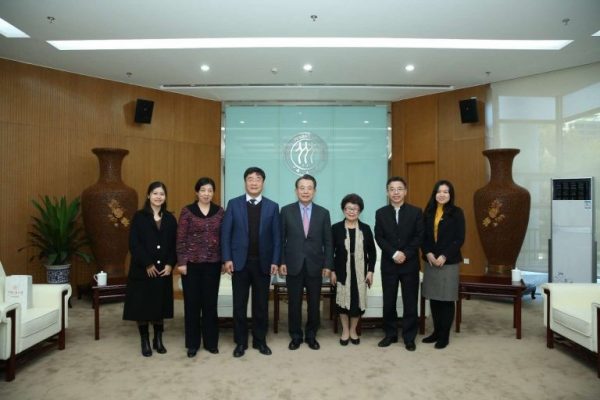
VIP room photos
The "Global Leaders" series of seminars of the Macro-Finance Salon was hosted by Ben Shenglin, Director of IMI and Director of the Institute of Internet Finance of Zhejiang University.
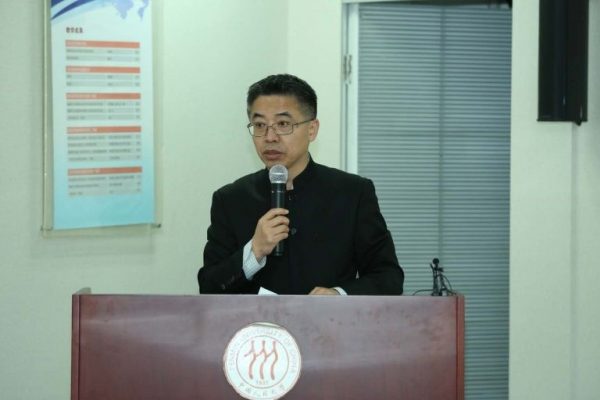
Ben Shenglin hosting the salon
Zhuang Yumin, Dean of the School of Finance of Renmin University of China, first delivered a speech and extended a warm welcome to the arrival of Dr. Han Seung-Soo and presented gifts to the two distinguished guests.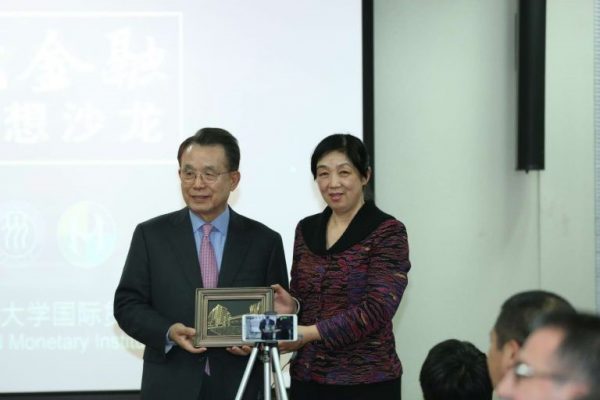
Dean Zhuang Yumin presenting a gift to Han Seung-soo and his wife
Dr. Han Seung-soo delivered a speech entitled “The 10th Anniversary of the Global Financial Crisis-What We Have Learned”. He recalled the contribution of the G20 to the economic recovery and introduced the green new policy of South Korea in dealing with the economic crisis. He suggested that countries should pay attention to long-term development, strengthen multilateral cooperation in the future and further structural reforms and fiscal reforms. At the same time, he pointed out the four lessons learned by South Korea in the financial crisis. First, after the economic crisis, the gap between the rich and the poor has increased, Brexit, trade war and other social problems caused by it need to be concerned and solved. Second, we need to understand the links between macro-economy and finance and pay attention to the inflation rate while also considering the financial cycle. Third, fiscal policy is now a counter-cyclical policy tool. Fiscal Expansion is not a panacea and countries need to enhance fiscal policy cooperation. Fourth, the latest research of the IMF pointed out that structural reforms also need to pay attention to short-term policy methods and specific implementation strategies.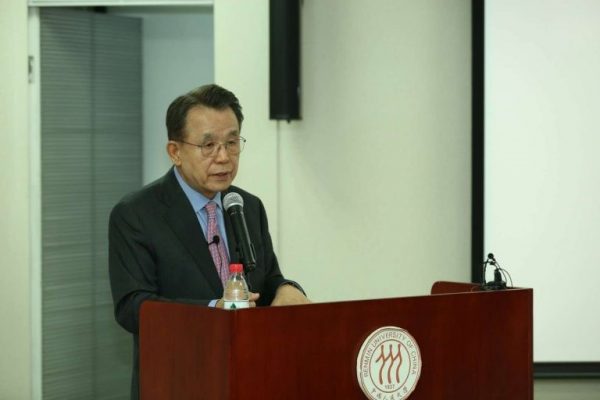
Dr. Han Seung-soo delivered a keynote speech
In the roundtable discussion, participants discussed how to prevent financial crises, developing countries' response measures, quantitative easing policies, shadow banking, structural reforms, and taxation. The involving guests were: Osman Multu, economic counselor of the Turkish Embassy to China, Bian Weihong, director of the International Finance Institute of Bank of China, and the deputy Editor-in-Chief of International Finance Research. Jin Hainian, Dean of Tsinghua Holding Industry Research Institute, Zhang Wenchun and Gang Jianhua , associate professors in the School of Finance of RUC. Dr. Han Seung-soo answered questions about the transformation of the G20's functions with his personal experience. He recalled the UN's efforts to protect the environment and green development and praised China's pursuit of green sustainable development. He also discussed how developing countries should respond to the financial crisis and how to prevent financial crises.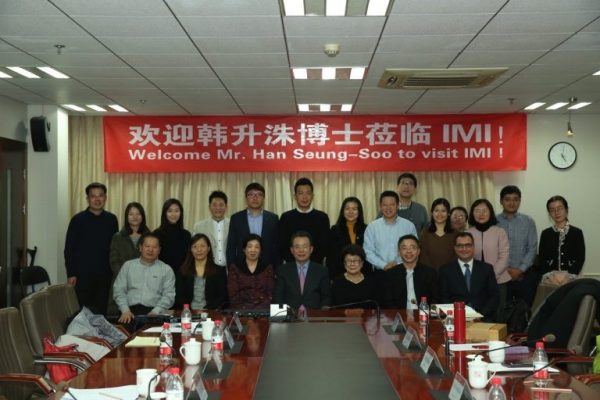
Group photos
Han Seung-Soo, a Korean politician and diplomat, served as the 56th President of the UN General Assembly (2001-2002) and the Prime Minister of Korea (2008-2009). He graduated from Yonsei University in Korea in 1960. He studied for master's and doctoral degrees at Seoul National University in South Korea and York University in the United Kingdom. He then worked as a faculty member at Seoul National University in Korea, Cambridge University and York University in the United Kingdom for nearly 20 years. From 1985 to 1986, he was a visiting professor at Harvard University's Department of Economics and served as a financial advisor to the Venezuela government, the Jordanian government, and the World Bank.
The “Macro-Finance” Academic Seminar Series (The Seminar) is a high level research exchange jointly founded by the China Numismatic Society and the Department of Numismatic Finance in Renmin University. The Seminar invites speakers to share their ideas and research, and is divided into 5 series, “global leadership”, “policy experts”, “academic leaders”, “enterprise elites”, and “youth scholars”. The Seminar joins Chinese practices with the international research frontier, its goal is to establish a high-level, professional and open research exchange platform that integrates theory, practice, policy and strategy for “Big-Finance” research in the new era. “Macro-Finance” is advocated by Professor Huang Da, who supports integrating financial research on both the macro and micro levels by treating finance and the real economy as one inseparable whole. In his book General Theory of Macrofinance, Mr. Chen Yulu, the deputy governor of the PBoC, discussed the fundamental ideas and approach behind macro-finance. The book has provided a solid framework support for establishing a macro-finance platform focused on long term economic growth and bolstering national competitiveness.